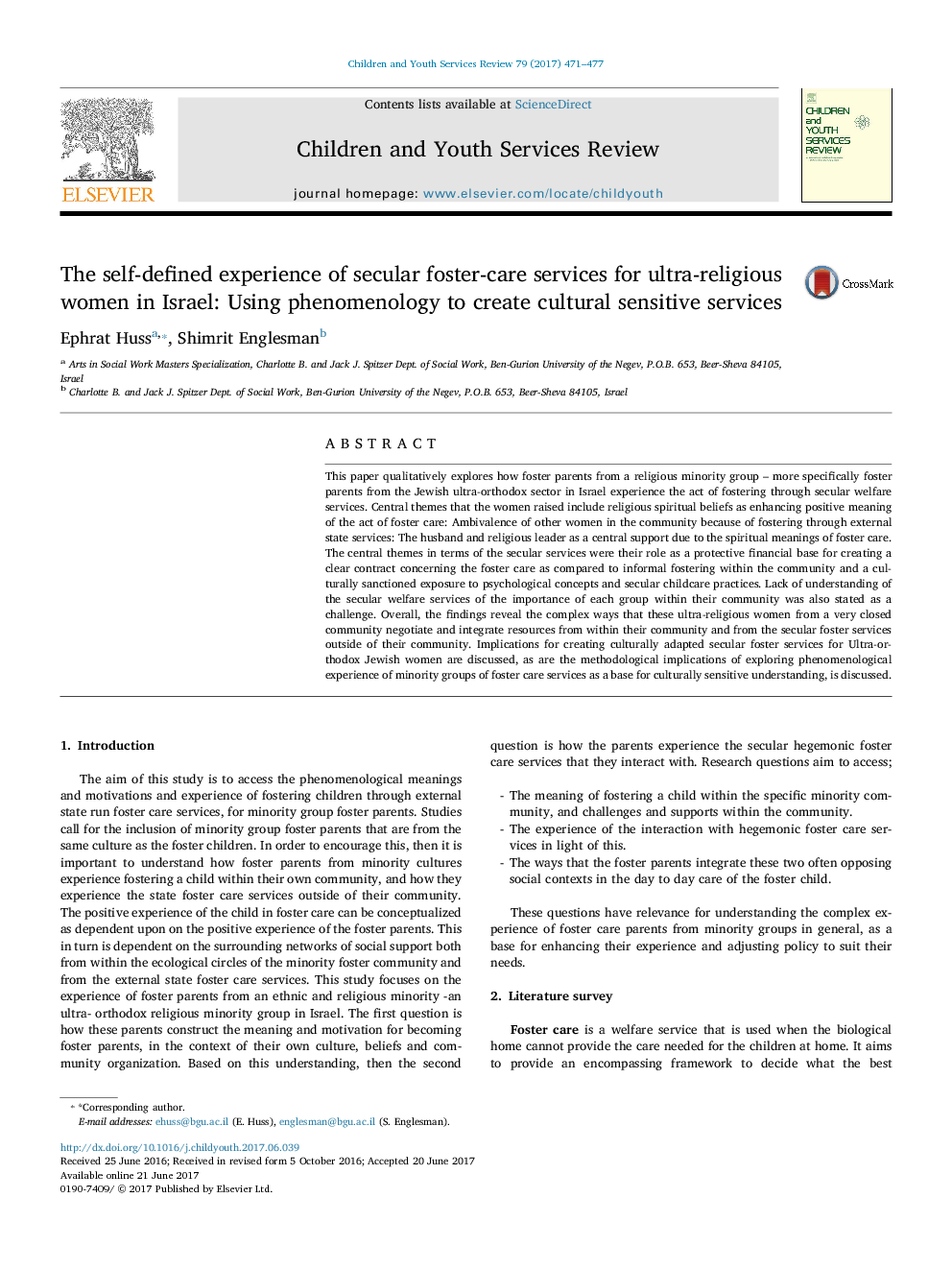ترجمه فارسی عنوان مقاله
تجربه خودتنظیمی از خدمات مراقبتی سکولار برای زنان مذهبی در اسرائیل: استفاده از پدیده شناسی برای ایجاد خدمات حساس فرهنگی
عنوان انگلیسی
The self-defined experience of secular foster-care services for ultra-religious women in Israel: Using phenomenology to create cultural sensitive services
| کد مقاله | سال انتشار | تعداد صفحات مقاله انگلیسی |
|---|---|---|
| 119906 | 2017 | 7 صفحه PDF |
منبع

Publisher : Elsevier - Science Direct (الزویر - ساینس دایرکت)
Journal : Children and Youth Services Review, Volume 79, August 2017, Pages 471-477

